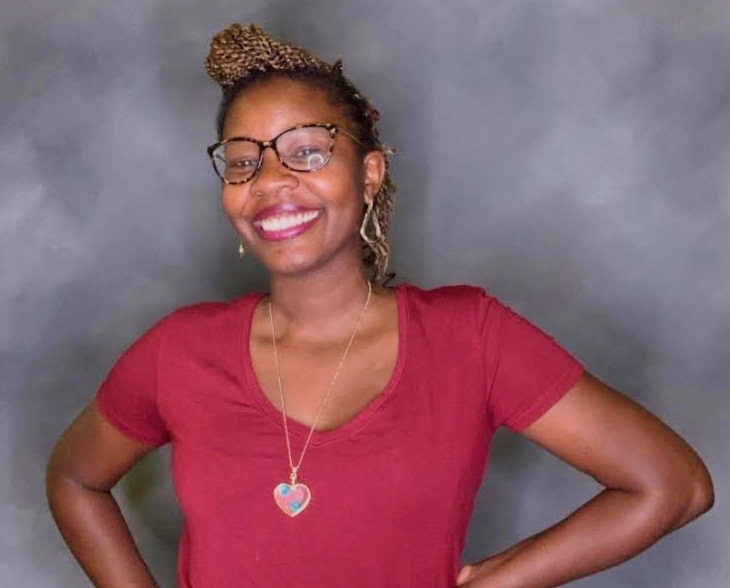Women in Consulting
Rachel Amalo knew from a young age that she wanted to specialize in a profession that involved mathematics.
“I’m one of those strange people who enjoys numbers in their entirety,” Amalo said.
When it came time for Amalo to start applying to colleges, her mother was quick to ask her about being involved in mathematics.
“My mother pulled a list off of the internet for me that listed all the careers that involve math and I was looking through it,” Amalo said. “I got to accountant and I was like, ‘people make fun of them all the time and they’re boring.’ Then I got to actuary and I was like, ‘Ooh, I’ve never heard of that before.’ There’s so few people in the world who are actuaries, but I decided I’d be unique.”
After deciding and looking into actuarial science, Amalo left Uganda, at just 18 years of age, for America to attend the University of Pennsylvania, specifically the Wharton School of Business.
“It was all incredibly exciting, but my primary hurdle was trying to fit in because not only were most of my classes more heavily male-centered, but they were also more heavily white-centered, non-Black,” Amalo said.
Amalo felt that since she had not experienced high school in America, it was challenging to compete with students that had more experience living in America.
“I was incredibly homesick and I think it just hit me that I was by myself in a brand new country,” Amalo said. “I was raised to basically keep my head down and do my work and I never seek out situations in which I could potentially be discriminated against. I just wanted to do well in school, get a job and stand on my own two feet.”
Amalo doesn’t remember experiencing any overt discrimination during college, but as far as work is concerned, she can certainly think of a few moments.
In the current company she works in, Amalo is known for being young. She knows that there are many other people in her company that have been there longer than she has. She finds that this difference makes it difficult for her to be heard due to her senior colleagues having more experience and time spent in the industry.
“Any idea that you have kind of gets swept under the rug and even the confidence to actually speak up in these industries is very difficult because sometimes you’re almost not sure if what you’re seeing or saying is the right thing,” Amalo said.
Amalo has had a similar experience with quite a few of her male colleagues, who tend to be more aggressive and enjoy hearing their own voice. In Amalo’s experience, this makes it hard for everyone within the group or meeting to even get a word in.
The struggle to share the floor when speaking is something Amalo didn’t see as an issue during college. The environment that many of Amalo’s teachers created within the classroom evened out the playing field.
“Most of my professors would call on the people who wouldn’t raise their hands as much in class as opposed to the person who would always love to hear the sound of their voice. Everybody got to be heard,” Amalo said.
As an actuary, Amalo has discovered that her profession in consulting is built on relationships within her teams and clients.
“Many outsiders to the industry have this idea that if you do your work, if you turn in your homework at the end of the day, you’ll get a grade, but that’s not how it works,” Amalo said. “You don’t have the option of choosing your team. You are restricted to playing within a certain sandbox and things within the sandbox may not necessarily be fair.”
As someone who has spent much of her time doing work involving inclusion, diversity and equality, Amalo has picked up on a few issues that are prominent within her company.
One of these issues is unconscious bias. Amalo has discovered that it is not something that many tend to do on purpose, but it does impact the way you may relate to others.
“If I were to go to a meeting, there would be me and another male colleague, and we are meeting a male client. It’s more likely that the two guys are going to get along with each other better, than for me and the male client because there’ll be some of these male bonding rituals,” Amalo said. “In that regard, they’re already building a sense of trust that I have to jump over just to be able to achieve because I am considered not the right gender.”
Another issue that Amalo has come across is the concept of gender dynamics. These kinds of stereotypes are something that she has seen have a great influence within the workforce.
Amalo has found that if a woman is outspoken, then they’re considered to be rude and brusque, but if a man were to be outspoken, he would be considered as knowledgeable and as a leader.
“We’ve been conditioned to believe that women are more empathetic, softer spoken, maybe not as brash, not as loud, and yet we all come in different shapes, sizes and volume control,” Amalo said. “Gender dynamics is a huge element within the workforce and life in general, and more often than not, it impacts a woman’s confidence.”
Amalo has realized that at work, she is sometimes afraid to give an opinion or say something until she is determined it is 100% accurate due to the backlash she may receive if wrong. This fear is not one she finds herself sharing with her male colleagues.
“I think this leads to male colleagues getting more opportunities because a lot of the time, in terms of getting your name out there, your male colleagues are more likely to succeed than female ones,” Amalo said.
The unequal distribution of opportunities is something that Amalo has recognized to be very dangerous within a working environment.
“It’s what they call an affinity bias, where someone will go to one worker to complete extra work and projects, but will continue going to this person, which gives this person a higher level of opportunities, making them more likely to rise to the ranks or get promoted faster than the rest of the people who are not receiving the same opportunities to prove themselves,” Amalo said.
According to Amalo, this can be very detrimental because many CEO’s, CFOs and vice presidents will reach down to those people who are being given more chances than others because they are familiar with their work. This pattern can then lead to loss of talent and variety in work style within the company because the company is not developing all of the talent within the corporation equally.
“That’s what organizations need to have: a very long answer to a very short question,” Amalo said.
By actively working towards making these issues involving women within male dominated industries, Amalo believes there will be improvement.
Amalo works toward this change by being a mentor within her own company and the Willis Towers Watson development programs. She is a part of one of the programs, called ‘She Leads’, which looks at high performing women across the organization and then concentrates on doing executive, building training sessions for the women within the program to take the next step in their desired direction.
“I am helping people to find their voice, as I learned to find my own,” Amalo said.
Not only will these programs help introduce women into male-dominated fields, but they will also teach women to build off of each other. Amalo has found that in science, math and engineering professions there is not much gender diversity, which means there are so few other women to idolize or use as an example. By making concentrated efforts to support other women and remind them that they can succeed too, they will push the industry in the right direction.
“Gender doesn’t matter — it should be about the knowledge you carry, your brain,” Amalo said. “You can do whatever you put your mind to and by exposing more and more young women to that idea, the more change we will see in these male dominated industries.”





